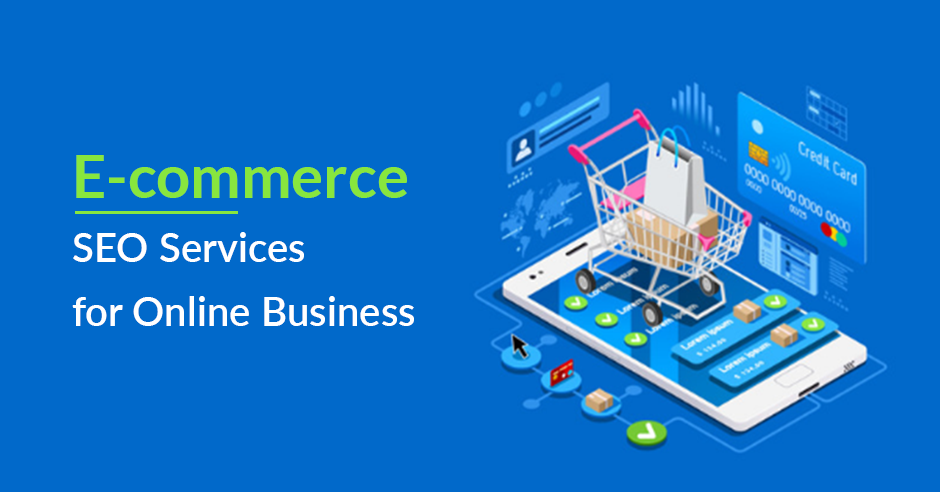In the world of e-commerce, where competition is fierce and search engine rankings directly impact revenue, it’s essential to adopt effective strategies to stay ahead. One often overlooked but highly effective method is using canonical tags. When implemented correctly, canonical tags can boost SEO performance, prevent content duplication issues, and streamline user experience on e-commerce sites. This article explores how to leverage canonical tags through professional Ecommerce SEO Services, helping you optimize your site and achieve better search rankings.
What are Canonical Tags?
A canonical tag, also known as a “rel=canonical,” is an HTML element that tells search engines which URL should be considered the authoritative or “primary” version of a page. In simpler terms, it prevents search engines from treating similar or identical pages as duplicate content. When two or more URLs display the same or very similar content, canonical tags help consolidate the SEO value and direct it to one main page. This is particularly useful in e-commerce, where product variations, similar pages, and complex category structures are common.
For example, if you have multiple product pages that feature the same item in different colors or sizes, canonical tags can help search engines understand which page you want to prioritize. Without these tags, search engines may mistakenly treat each version as a unique page, leading to “duplicate content” issues that can dilute your ranking potential. By leveraging canonical tags with Ecommerce SEO Packages, you ensure that search engines know which pages are most relevant to your SEO goals.
Why Canonical Tags are Essential in Ecommerce SEO
E-commerce sites often contain thousands of pages, each potentially competing for search engine attention. Here are some reasons why canonical tags are essential:
Prevent Duplicate Content Issues: In an e-commerce setting, product pages often vary by URL due to factors like sorting options, filters, and variants. Search engines may index each URL as a separate page, creating duplicate content issues that can negatively impact rankings. Canonical tags signal the main URL, helping avoid this problem.
Improve Crawl Efficiency: Search engines use bots to crawl websites, but they have limited time and resources for each site. By implementing canonical tags, you guide these bots to focus on essential pages instead of wasting time on duplicates. This allows search engines to crawl your site more efficiently, improving the chances of getting key pages indexed.
Consolidate Link Equity: When multiple URLs lead to the same content, link equity (SEO value from inbound links) gets divided. Canonical tags consolidate this value by directing all link equity to a single page. This is crucial for e-commerce sites, where certain products or categories may have considerable traffic.
Enhance User Experience: By consolidating duplicate pages into a single, canonical version, you offer users a streamlined experience. They’re less likely to encounter duplicate content or confusion from repeated pages, leading to a smoother shopping journey.
How Ecommerce SEO Services Can Help with Canonical Tag Implementation
Navigating the nuances of canonical tags can be challenging for e-commerce business owners, especially those without an SEO background. Ecommerce SEO Services are designed to address these complexities by implementing the technical aspects of SEO on your site, including canonical tags.
An experienced SEO team will:
Conduct an Audit: They’ll examine your site structure, identify duplicate pages, and understand the variations in URLs across product pages. This helps determine where canonical tags are most needed.
Define a Canonical Strategy: Not all pages require canonical tags, and an experienced SEO provider will decide which pages benefit most from them.
Implement and Test Tags: A good SEO service will ensure the tags are correctly placed and functional, conducting regular checks to prevent and resolve errors.
Monitor and Optimize: Canonical tags need periodic optimization to keep up with site changes, especially as new products and categories are added.
Key Scenarios for Using Canonical Tags in Ecommerce
Using canonical tags can become complicated in e-commerce due to varied use cases. Here are some situations where canonical tags are essential:
Product Variations
If you offer a product with multiple variations, such as color or size, each variation might have its URL. However, the product description and information remain largely the same. To avoid duplicate content, you can apply canonical tags to ensure search engines view one URL as the primary version.
Sorting and Filtering Options
Most e-commerce sites offer options for sorting products by popularity, price, or rating. These sorting filters create new URLs, each displaying the same products in a different order. Canonical tags help by pointing all these variations to a single URL, reducing the risk of duplicate content.
Pagination
When a product category spans multiple pages, each page generates a unique URL. Without canonical tags, search engines may view each paginated page as separate, which can confuse crawlers. Canonical tags allow you to indicate a single “main” category URL, consolidating SEO efforts.
Session IDs and Tracking Parameters
E-commerce sites often use session IDs and tracking parameters to collect data on user behavior. However, these parameters can create new URLs, even if the underlying content remains unchanged. Canonical tags signal the main URL to search engines, preserving link equity while supporting tracking.
Benefits of Including Canonical Tag Strategies in Ecommerce SEO Packages
When you invest in Ecommerce SEO Packages, canonical tags should be part of the offering. Here are the core benefits of including canonical tags within your SEO package:
Greater Organic Visibility: By reducing duplicate content and ensuring search engines focus on primary URLs, you improve your site’s chances of ranking for competitive keywords.
Efficient Budget Allocation: When search engines can effectively crawl and index your site, you maximize the ROI of your SEO efforts. SEO budgets can be better allocated toward generating high-quality content and attracting backlinks, rather than addressing crawl issues.
Stronger Brand Authority: An optimized e-commerce site projects professionalism and brand authority. By removing duplicate content and improving user experience, you demonstrate a commitment to quality, which can have long-term benefits for brand loyalty and recognition.
Enhanced Mobile Optimization: Many canonical tags are used alongside responsive design elements. This can help align SEO efforts on desktop and mobile platforms, creating a seamless experience regardless of the device your customer uses.
Best Practices for Implementing Canonical Tags in Ecommerce
When working with Ecommerce SEO Services, it’s important to follow best practices to ensure canonical tags serve your site’s SEO strategy:
Avoid Overuse: While canonical tags are helpful, they should only be applied to pages with genuine duplication issues. Using too many canonical tags can cause search engines to ignore important pages.
Keep Tags Consistent: Ensure canonical tags consistently point to the correct URL. Errors can lead to conflicting signals and diminished SEO impact.
Regularly Monitor Tags: Canonical tags require regular monitoring. As your product offerings and website structure change, certain tags may need updating.
Use Canonicals with 301 Redirects Cautiously: In some cases, it’s better to use a 301 redirect for duplicate content. An experienced SEO team will help you decide between these methods for optimal results.
Audit for Broken Links: Broken links impact SEO and user experience. An SEO service should routinely audit your site for broken links and update any canonical tags as necessary.
Conclusion: Achieving Success with Ecommerce SEO Services and Canonical Tags
Leveraging canonical tags is a powerful way to optimize your e-commerce website. By implementing a strategic approach, these tags can prevent duplicate content issues, consolidate link equity, and improve the overall user experience. With the help of Ecommerce SEO Services, you can integrate canonical tags effectively as part of a holistic SEO strategy that enhances your site’s visibility and authority.
Ultimately, investing in Ecommerce SEO Packages that include canonical tag implementation allows your business to gain a competitive edge. The right SEO strategies make it easier for customers to find your site, explore your offerings, and enjoy a streamlined shopping experience. Canonical tags may be a technical element, but when used effectively, they have the potential to drive traffic, increase conversions, and grow your business’s online presence.




